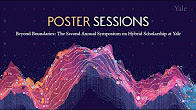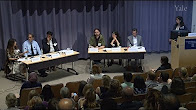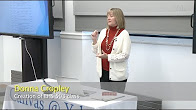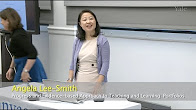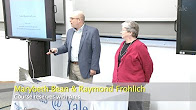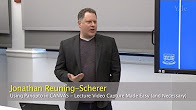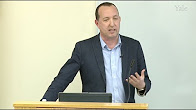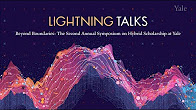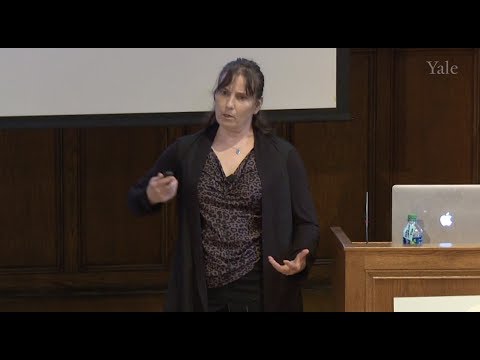source:
Instituto de Física Teórica IFT
6:44
Conoce a un candidato a Premio Nobel: Barry Barish (parte 2/2) ¡NO OLVIDÉIS ACTIVAR LOS SUBTÍTULOS!
Entrevista (2/2) en la visita al IFT de Barry Barish, profesor de Caltech, experto en ondas gravitacionales, fundador de LIGO, Premio Princesa de Asturias 2017,...

9:09
Conoce a un candidato a Premio Nobel: Barry Barish (parte 1/2) ¡ATENCIÓN: ACTIVAD LOS SUBTÍTULOS PARA VER LA TRADUCCIÓN!
Entrevista (1/2) en la visita al IFT de Barry Barish, profesor de Caltech, experto en ondas gravitacionales, fundador de LIGO, Premio Princ...

9:38
¿Puede desintegrarse el vacío? Estabilidad del campo de Higgs El vacío está en realidad lleno del campo de Higgs... pero ¿sabíais que los datos actuales apuntan a que el campo de Higgs podría hacer que el vacío se encuentre en un estado no totalmente estable?...

6:25
Materia Oscura: Sistema Solar vs. Vía Láctea Si la Materia Oscura compone la mayor parte de la masa de galaxias como la Vía Láctea, ¿por qué no se nota en el movimiento de los planetas en el Sistema Solar? El investigador predoctoral togolés ...

2:56
¿Qué es el efecto túnel cuántico? El mundo cuántico está lleno de fenómenos fascinantes, como el efecto túnel. Alberto Casas, investigador del IFT, nos lo explica.
No te pierdas ningún vídeo: solo tienes que... ¡SUSCRIBIRTE!, ¡es ...

8:40
¿Cómo se miden distancias en el Universo? ¿Cómo calculamos con precisión a qué distancia están las estrellas y galaxias que nos rodean? Doris Stoppacher, investigadora predoctoral austríaca del IFT, nos lo cuenta.
No te pierdas ningún víd...

9:20
¿Cuáles serían las propiedades del gravitón? El gravitón no se ha descubierto experimentalmente, aunque estamos seguros de cuáles deben ser sus propiedades. Pero ... ¿cómo las sabemos? Javi Martín, doctorando del IFT, nos lo explica!
No te p...

4:12
Masas y sabores de neutrinos Cuando los neutrinos oscilan de un sabor a otro ¿se crea masa de la nada? Josu Hernández, doctorando del IFT, nos aclara que los sabores no tienen masa definida... y viceversa
No te pierdas ningún...

2:26
¿Qué es la helicidad de las partículas? La helicidad de las partículas, esa gran desconocida para el gran público... y que Sara Saa, doctoranda del IFT, nos explica en detalle.
No te pierdas ningún vídeo: solo tienes que... ¡SUSCRIBIRTE...

2:49
Homogeneidad e isotropía del Universo ¡Explicado! El universo a gran escala es homogéneo e isótropo, pero... ¿qué significa eso? ¡Juan García-Bellido, investigador del IFT, nos lo explica!
No te pierdas ningún vídeo: solo tienes que... ¡SUSCRIBIR...

8:05
Agujeros negros y principio holográfico... ¡Explicado! Seguro que lo has oído pero... ¿Qué quiere decir que el universo puede ser como un holograma? ¿y qué tiene que ver con los agujeros negros? Javier Martín, doctorando del IFT, nos lo aclara.
Artícul...

3:10
La velocidad de la luz Álvaro de Rújula nos explica que la velocidad de la luz es .... ¡un pie por nanosegundo!
No te pierdas ningún vídeo: solo tienes que... ¡SUSCRIBIRTE!, ¡es GRATIS!:
https://www.youtube.com/user/IFT...

2:16
¿Hay un tamaño máximo para los efectos cuánticos? La Física Cuántica describe los fenómenos físicos a escalas atómicas... ¿o no solo a esas escalas? Ya-Wen Sun, investigadora postdoctoral del IFT, nos lo explica.
No te pierdas ningún vídeo: solo ...

1:10:35
La fórmula que describe el mundo - Sven Heinemeyer ¿Qué es el Modelo Estándar? ¿Cómo describe las partículas, las fuerzas, y el bosón de Higgs? ¿Y qué puede existir más allá del Modelo Estándar?
Sven Heinemeyer, investigador del IFT y del IFCA, nos...

5:22
¿Cómo adquieren masa los neutrinos? ¿De dónde proviene la masa de los neutrinos? ¿Y por qué es millones de millones de veces menor que la de otras partículas? ¿Podría ser eso una de las claves fundamentales del universo? ¡Belén Gavel...
 33:04 Paul E. Turner (Yale) 1: Introduction to Virus Ecology and Evolution Part 1: Introduction to Virus Ecology and Evolution: Dr. Paul Turner describes the fundamental biology of viruses, how they interact with their host organisms, and how they might have originally ev...
33:04 Paul E. Turner (Yale) 1: Introduction to Virus Ecology and Evolution Part 1: Introduction to Virus Ecology and Evolution: Dr. Paul Turner describes the fundamental biology of viruses, how they interact with their host organisms, and how they might have originally ev...  22:35 Paul E. Turner (Yale) 3: Phage Therapy Part 1: Introduction to Virus Ecology and Evolution: Dr. Paul Turner describes the fundamental biology of viruses, how they interact with their host organisms, and how they might have originally ev...
22:35 Paul E. Turner (Yale) 3: Phage Therapy Part 1: Introduction to Virus Ecology and Evolution: Dr. Paul Turner describes the fundamental biology of viruses, how they interact with their host organisms, and how they might have originally ev...  47:02 Paul E. Turner (Yale) 2: Virus Adaptation to Environmental Change Part 1: Introduction to Virus Ecology and Evolution: Dr. Paul Turner describes the fundamental biology of viruses, how they interact with their host organisms, and how they might have originally ev...
47:02 Paul E. Turner (Yale) 2: Virus Adaptation to Environmental Change Part 1: Introduction to Virus Ecology and Evolution: Dr. Paul Turner describes the fundamental biology of viruses, how they interact with their host organisms, and how they might have originally ev...  1:02:20 Live Q&A: How to Discuss Your Research Plan With a Mentor As a trainee in science, one of the most important areas on which to get feedback is on your research plan. (Here we mean your overall project plan, not the to-do list for the next couple of weeks ...
1:02:20 Live Q&A: How to Discuss Your Research Plan With a Mentor As a trainee in science, one of the most important areas on which to get feedback is on your research plan. (Here we mean your overall project plan, not the to-do list for the next couple of weeks ...  32:01 Uma Ramakrishnan (NCBS) 2: Biogeography and Speciation in Indian mountain ranges Part 1: Biogeography: Studying the distribution of species across space: Dr. Uma Ramakrishnan explains factors that shape biodiversity, and shows that biodiversity is higher in islands, tropics, an...
32:01 Uma Ramakrishnan (NCBS) 2: Biogeography and Speciation in Indian mountain ranges Part 1: Biogeography: Studying the distribution of species across space: Dr. Uma Ramakrishnan explains factors that shape biodiversity, and shows that biodiversity is higher in islands, tropics, an...  23:55 Uma Ramakrishnan (NCBS) 1: Biogeography: Studying the distribution of species across space Part 1: Biogeography: Studying the distribution of species across space: Dr. Uma Ramakrishnan explains factors that shape biodiversity, and shows that biodiversity is higher in islands, tropics, an...
23:55 Uma Ramakrishnan (NCBS) 1: Biogeography: Studying the distribution of species across space Part 1: Biogeography: Studying the distribution of species across space: Dr. Uma Ramakrishnan explains factors that shape biodiversity, and shows that biodiversity is higher in islands, tropics, an...  1:02:00 Live Q&A: Developing a Research Question Developing a scientific question is an essential first step in doing research. A well-formulated question focuses your research and guides your experimental approach. Join for this live Q&A where p...
1:02:00 Live Q&A: Developing a Research Question Developing a scientific question is an essential first step in doing research. A well-formulated question focuses your research and guides your experimental approach. Join for this live Q&A where p...















